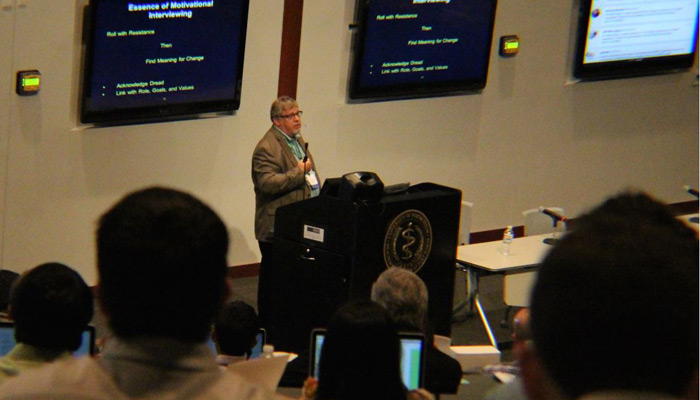Kinder, gentler approach helps kids lose weight
Suppose your child’s doctor said, “Kaylie is obese and she’s going to get diabetes if you don’t stop feeding her junk and letting her play computer games all day.”
Suppose instead, you and the doctor had this conversation:
“What do you want Kaylie’s health to be like six months from now?”
“I want her to lose some weight. And to run and play with other kids. She wants to be on the volleyball team.”
“Awesome! She can do it. Would you like to talk about some ways to get there?”
“Yes; I’m trying to cut down the Cokes she drinks.”
“Some parents have luck with having just one sweetened drink a day for their kids. You could give her choices — she can pick what kind it is and when to drink it.”
“I think I can do that.”
“That’s better for her, and it’ll help her avoid serious problems like diabetes.”
That’s an example of motivational interviewing. Research shows that doctors who use this method to counsel obese children and their parents can help the kids decrease their body-mass index, said Ken Resnicow, Professor in the University of Michigan School of Public Health.
He was keynote speaker Thursday at the 10th Annual Texas Conference on Health Disparities.
The conference continues today at the UNT Health Science Center in Fort Worth. The theme is “Basic, Clinical and Community Approaches to Solving Obesity.”
Motivational interviewing, or MI, substitutes gentle, collaborative goal-setting for “old school” shaming and scare tactics, which research shows often backfire.
About 400 conference attendees heard Dr. Resnicow present recent findings, including:
- Although children’s obesity rates have risen dramatically, obesity counseling by primary care doctors has fallen, mostly because they don’t know how to motivate patients and their parents.
- When doctors, sometimes working with dietitians, used MI to counsel patients and parents, the children’s BMI decreased between 2 and 5.5 percentile points.
- Results were better among Hispanics than other ethnic groups, perhaps because they were pleasantly surprised that the doctor showed more respect than they previously received in the health care system.
- Patients don’t necessarily want to be “race-matched” to a health care provider. A patient may self-identify more as a Marine or a dad, for example, than as a black man or a white man.






Social media